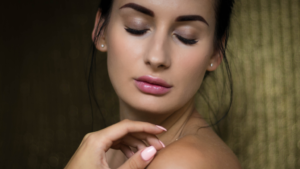
Most of us have something we don’t like about our appearance — a crooked nose, an uneven smile, or eyes that are too large or too small. And though we may fret about our imperfections, they don’t interfere with our daily lives.
But people who have become “obsessed” with their appearance think about their real or perceived flaws for hours each day. They can’t control their negative thoughts and don’t believe people who tell them that they look fine. Their thoughts may cause severe emotional distress and interfere with their daily functioning. They may miss work or school, avoid social situations and isolate themselves, even from family and friends, because they fear others will notice their flaws.
Unfortunately, the media isn’t helping the situation, owing to the fact that popular beauty influencers and campaigners have shaped the way young women and men should be portrayed. Society depicts beauty as skinny waistlines, big muscles, tan skin, full lips, large breasts and six-pack abs; dismissing the fact that true beauty originates from the inside.
Many teenagers and young adults become mislead with this perfect image of beauty circulated on the media and when they juxtapose who they are with what they see on TV; the fragile hearted ones will mostly feel insecure and want to “blend in”, so they turn to buying harmful beauty products that could potentially affect their skin adversely in the long run and some would opt for dangerous surgeries just so they could look somewhat like the “hot celebrity on TV”. It is not a bad idea to have role models but young people are being mislead to be who they are not and they invariably lose themselves while trying to become someone else.
Adolescents with negative body images are more likely to be depressed, anxious and suicidal than those without intense dissatisfaction over their appearance, even when compared to adolescents with other psychiatric illnesses and that is why it is imperative that parents, teachers and adult role models need to take an active role in educating young children and teenagers about self-confidence and the qualities of true beauty: kindness, compassion, patience and sharing. Telling people every day that they are beautiful can help them gain self-confidence.
Unfortunately we cannot escape commercials, beauty magazines and the makeup counters at department stores, but we can teach true inner beauty in hope to prevent psychological issues, such as depression and anxiety, in our girls and future generations.








Leave a Reply